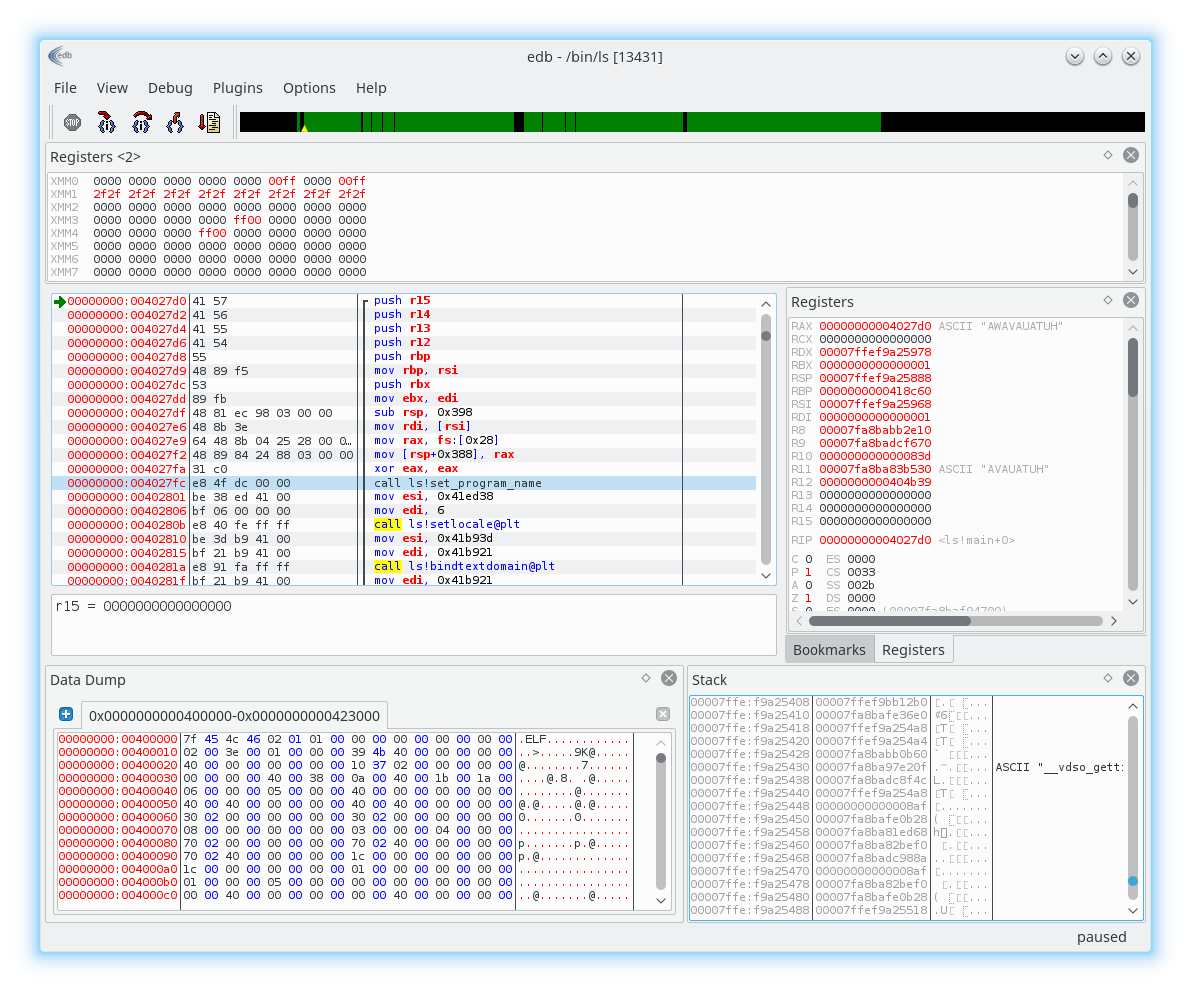edb is a cross platform x86/x86-64 debugger. It was inspired by Ollydbg, but aims to function on x86 and x86-64 as well as multiple OS's. Linux is the only officially supported platform at the moment, but FreeBSD, OpenBSD, OSX and Windows ports are underway with varying degrees of functionality.
edb is available under the GPL 2 license, see the COPYING for details.
NOTE: This README now only covers the most essential documentation, for more complete documentation see the wiki
When cloning the repo, please use git's --recursive flag to ensure that the sub-modules will be properly cloned and updated to the correct versions. Here is an example:
git clone --recursive git@github.com:eteran/edb-debugger.git
Compiling edb is generally quite simple. edb currently depends on the following packages:
- Qt >= 4.6
- Boost >= 1.35 (headers only)
Many distributions already have packages that satisify these.
Once you have Qt and Boost installed, it is as simple as
$ qmake
$ make
This will build the debugger along with all plugins I have written. On certain
systems your qmake may be named slightly differently, I've noticed that the
Fedora Core rpms name it qmake-qt4.
If you are planning on doing a make install, you likely want to specify the default plugin path, here's how you would do that.
$ qmake -makefile DEFAULT_PLUGIN_PATH="/usr/lib/edb/"
$ make
Basic installation is simple, you may run
$ make install
Or if you would like to specify where things should go, you probably want to use something like this
make INSTALL_ROOT=/usr/ install
In which case the plugins will be installed in /usr/lib/edb and the binaries will be installed in /usr/bin/. Finally, if you are doing a make install, you probably want to specify a default plugin path, this is done during the qmake process.
